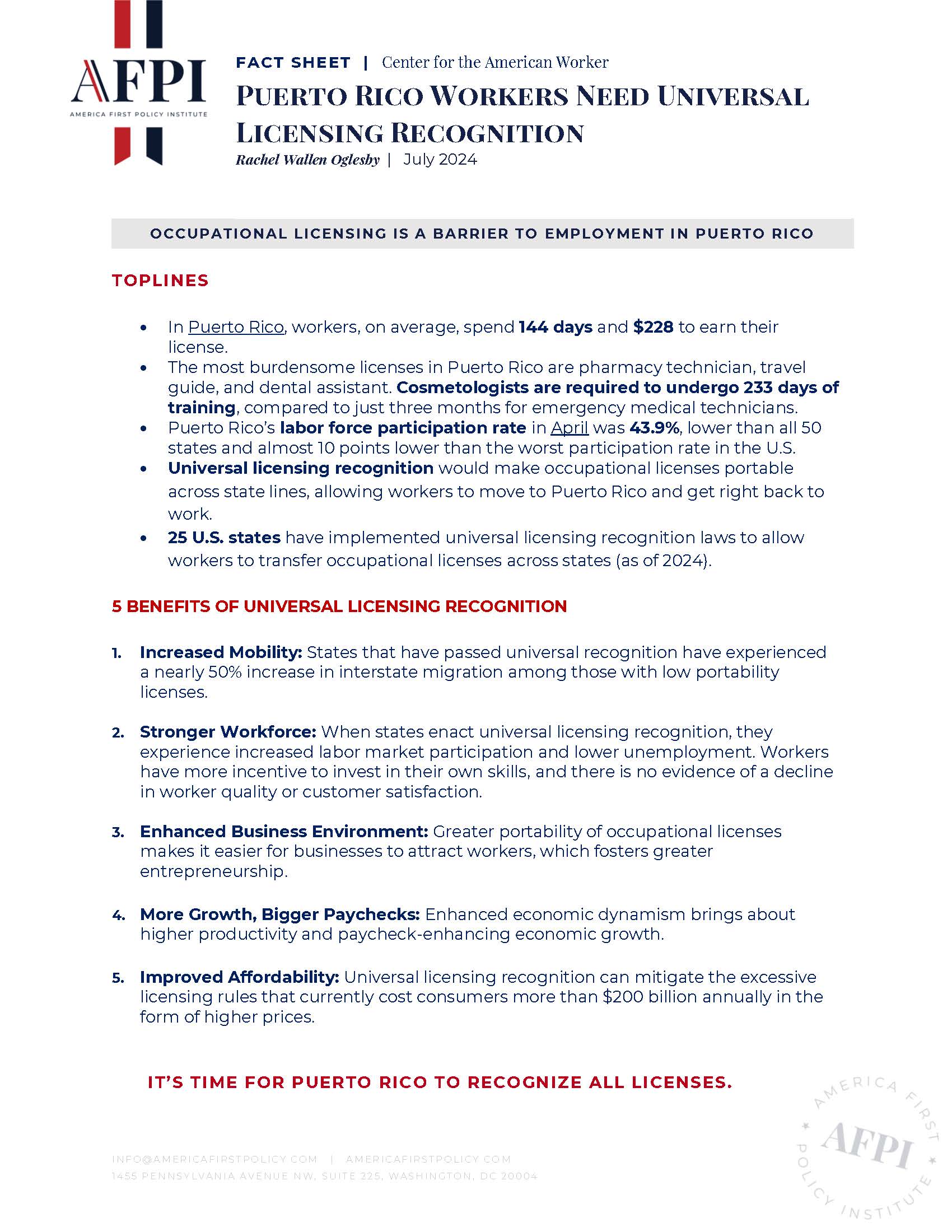Puerto Rico Workers Need Universal Licensing Recognition
Key Takeaways
In Puerto Rico, workers, on average, spend 144 days and $228 to earn their license.
The most burdensome licenses in Puerto Rico are pharmacy technician, travel guide, and dental assistant. Cosmetologists are required to undergo 233 days of training, compared to just three months for emergency medical technicians.
Puerto Rico’s labor force participation rate in April was 43.9%, lower than all 50 states and almost 10 points lower than the worst participation rate in the U.S.
Universal licensing recognition would make occupational licenses portable across state lines, allowing workers to move to Puerto Rico and get right back to work.
25 U.S. states have implemented universal licensing recognition laws to allow workers to transfer occupational licenses across states (as of 2024).
OCCUPATIONAL LICENSING IS A BARRIER TO EMPLOYMENT IN PUERTO RICO
5 BENEFITS OF UNIVERSAL LICENSING RECOGNITION
- Increased Mobility: States that have passed universal recognition have experienced a nearly 50% increase in interstate migration among those with low portability licenses.
- Stronger Workforce: When states enact universal licensing recognition, they experience increased labor market participation and lower unemployment. Workers have more incentive to invest in their own skills, and there is no evidence of a decline in worker quality or customer satisfaction.
- Enhanced Business Environment: Greater portability of occupational licenses makes it easier for businesses to attract workers, which fosters greater entrepreneurship.
- More Growth, Bigger Paychecks: Enhanced economic dynamism brings about higher productivity and paycheck-enhancing economic growth.
- Improved Affordability: Universal licensing recognition can mitigate the excessive licensing rules that currently cost consumers more than $200 billion annually in the form of higher prices.
